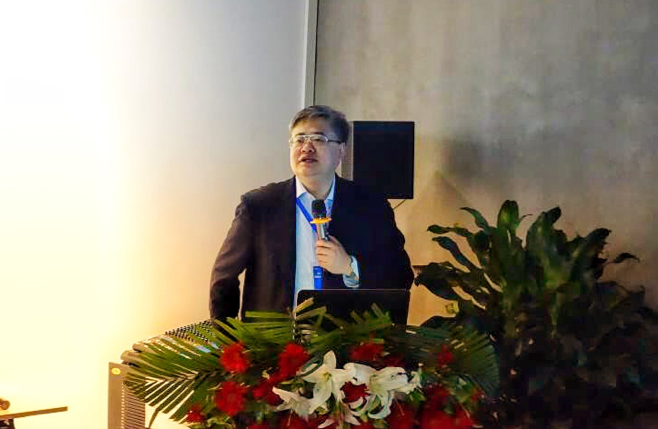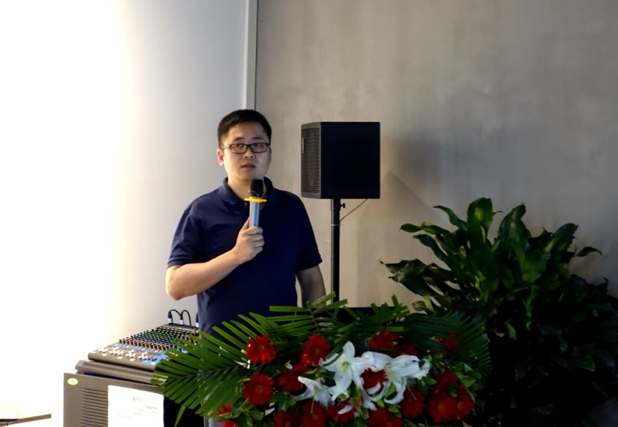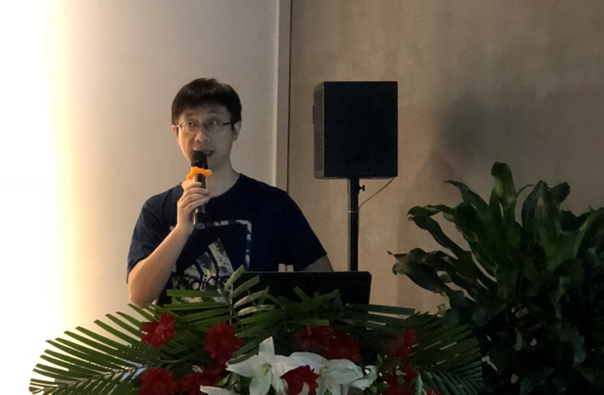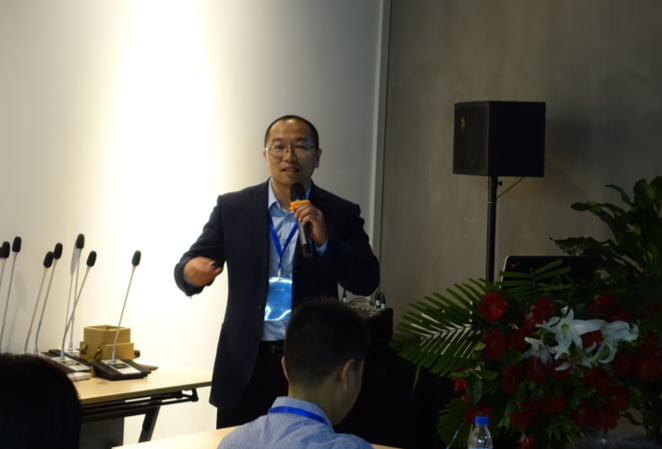- About Us
- News
- Results Released
- Application Scenarios
- Resource Center
- Meeting

From May 12 to 14, 2018, the Second Symposium on Edge Computing (SEC) China 2018 convened in Xi'an. The symposium was organized by the Edge Computing Consortium (ECC) and co-hosted by Xidian University in Xi'an, with the assistance from the Edge Computing Professional Committee of the China Association of Automation (CAA), Shenyang Institute of Automation of the Chinese Academy of Sciences (CAS), Huawei Technologies Co., Ltd., and the School of Telecommunications Engineering of Xidian University. In attendance were more than 150 representatives from universities, scientific research institutes, and enterprises engaged in research, development, and industry applications of edge computing technologies.

Yu Haibin, Chairperson of the ECC Council, gave a keynote report on Edge Intelligence: Architecture, Progress, and Industrial Application. He pointed out that we have arrived at the age of edge computing 2.0, that is, the age of edge intelligence. Edge intelligence refers to edge computing with machine learning and cutting-edge network capabilities. This means that the information technology (IT) and operational technology (OT) industries are advancing towards the network edge, helping resolve problems concerning real-time networks, network security, self-learning solutions, and personalized networking solutions. He analyzed and spoke in detail on the five requirements that act as driving forces, two constraints, three technical driving forces, and four enablement initiatives.

Shi Yang, Chairman of the Requirement and Architecture Team of the ECC, talked about Edge Computing 2.0 Reference Architecture and ECC Industry Advancement – Sharing of Some Thoughts. In doing so, he explained the reasons for the rapid development of edge computing from the perspective of digital transformation of industries and defined the basic concepts, design principles, and an overall reference architecture of edge computing 2.0. He also interpreted the reference architecture from both a functional and conceptual view, and shared the application scenarios and typical cases of edge computing.

Fan Lingqiang, an expert from the Requirement and Architecture Team of the ECC, elaborated on his report on Edge Computing Development Experience Cloud. He explained the current situation and difficulties of edge computing engineering in various innovative IoT fields. He also shared Huawei's edge computing innovation tool – edge computing development experience cloud – and how the tool can be harnessed to significantly improve innovation efficiency, reduce the cost of innovation, and provide strong support for efficient cooperation and rapid business implementation in the edge computing industry. The report sparked interest and discussion of many representatives from academia and enterprises.

Cui Shiyong, an expert from the Experimental Platform Team of the ECC, gave a presentation on Leveraging New Technologies, Enabling Core Fields of New Smart Cities. He discussed how to apply new technologies such as IoT, cloud computing, edge computing, Big Data, and artificial intelligence (AI) to enable the core fields of new smart cities, implementing integrated infrastructure, integrated data, integrated city governance, integrated industry development, and integrated public services.
Professor Shi Weisong, a renowned expert in the edge computing field from Wayne State University in the United States, delivered a report on Edge Computing: State-of-the-Art and Future Directions. He reviewed the history of edge computing, summarized the current situation of edge computing development, and described the future development of edge computing. The report provided directions and guidance for practitioners in the edge computing industry.
Many other experts were invited to the symposium. They are from universities and research institutes such as Shanghai Jiao Tong University, Sun Yat-sen University, Xidian University, Tianjin University, Anhui University, Hangzhou Dianzi University, Beihang University, and the Institute of Computing Technology of China Academy of Sciences, as well as enterprises such as China Unicom, Ningxia Diantong Group, ARM, YunEx, and CyberInsight. From the perspectives of academic studies, industry, and application, the experts discussed key technologies such as edge computing security and energy consumption, core issues such as edge computing system architecture and software algorithms, and exploration and challenges of edge computing in industry applications such as the Internet of Vehicles (IoV), elevators and escalators, predictive maintenance, and smart manufacturing.